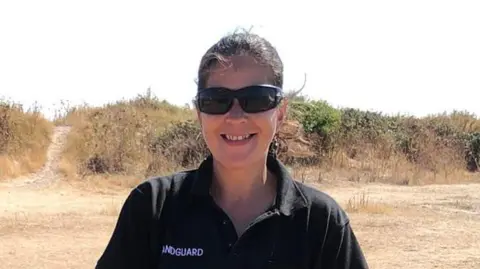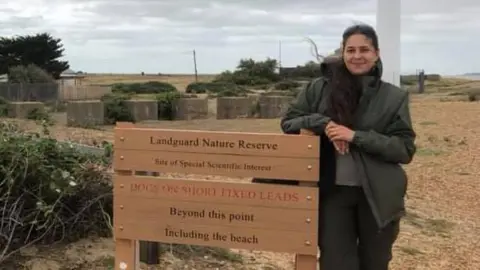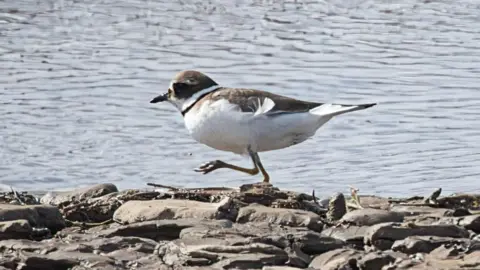Dogs threatening nature reserve birds - ranger
 Contributed
ContributedDogs roaming off their leads have been threatening ground-nesting birds at a nature reserve, a ranger has said.
Leonie Washington, is a ranger at Landguard Nature Reserve in Felixstowe, Suffolk, where birds such as ringed plover nest.
The nature reserve is calling for dog owners to read warning signs and learn which areas they can walk safely after some birds were driven off the site.
Ms Washington urged people to give the birds space and said it was "heartbreaking" to see them being disturbed.
 Contributed
Contributed"We've seen a huge increase in the number of dog walkers on site, probably as a result of the lockdowns and Covid, but also I'm sure as a result of the increased development all over Suffolk," Ms Washington explained.
"Unfortunately there are those that choose not to read the signs, or not to take our advice, and allow their dogs to just run free."
'Exhausted'
 Shaun Whitmore/BBC
Shaun Whitmore/BBCMs Washington said there was clear signage for where dogs could and could not be walked.
The disturbances had meant the birds were moving away from their nests, meaning they had less chances to feed or mate and their eggs were also threatened.
"It's quite heartbreaking to watch the birds struggle," Ms Washington continued.
"Each time that a nest fails due to disturbance or predation, because of course predation occurs, they do try again.
"But before they try again they have to rebuild their breeding condition and then they have to find a nest site again, lay their eggs, incubate the eggs, so they're using more and more energy as the season progresses.
"They might try two or three times, occasionally four times, by the end of the breeding season they are exhausted."
Follow Suffolk news on BBC Sounds, Facebook, Instagram and X.
